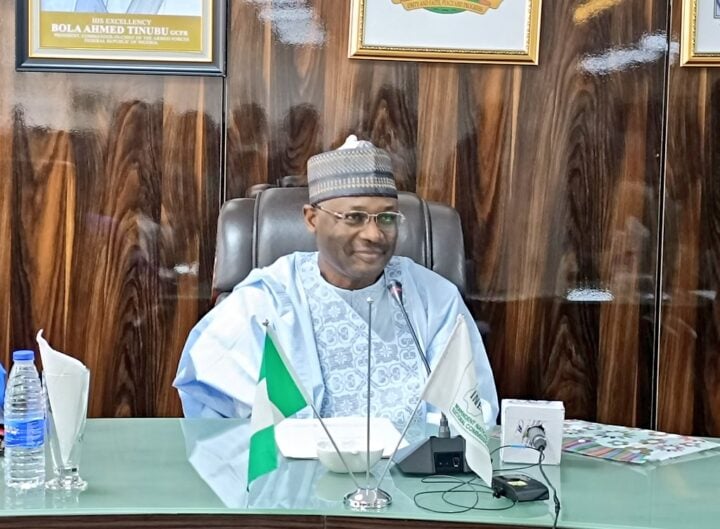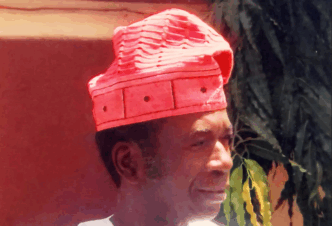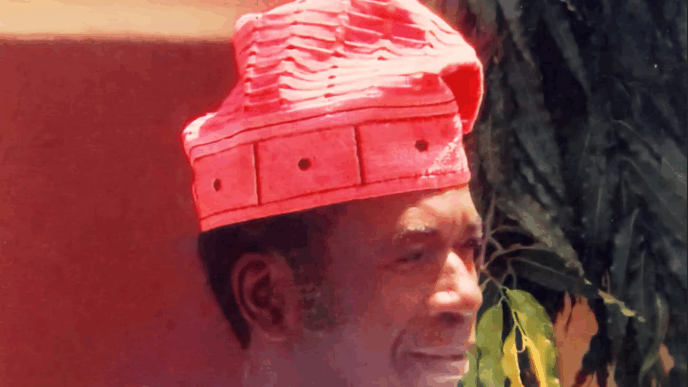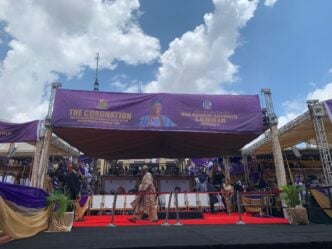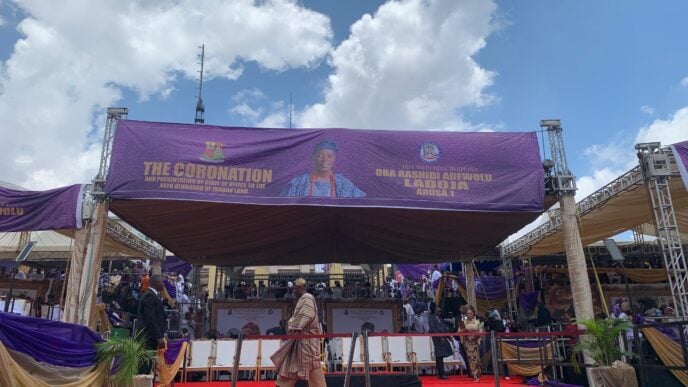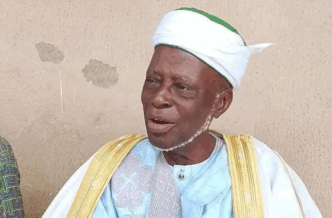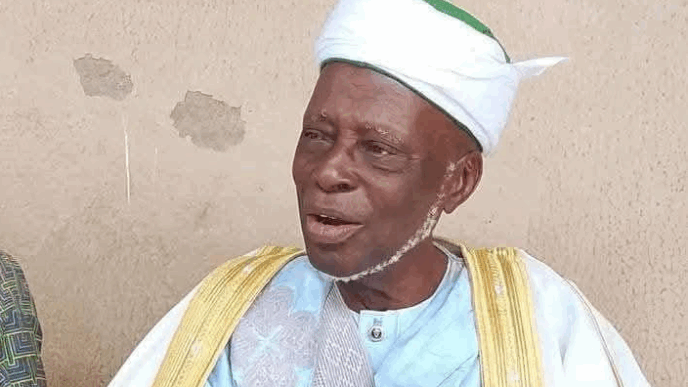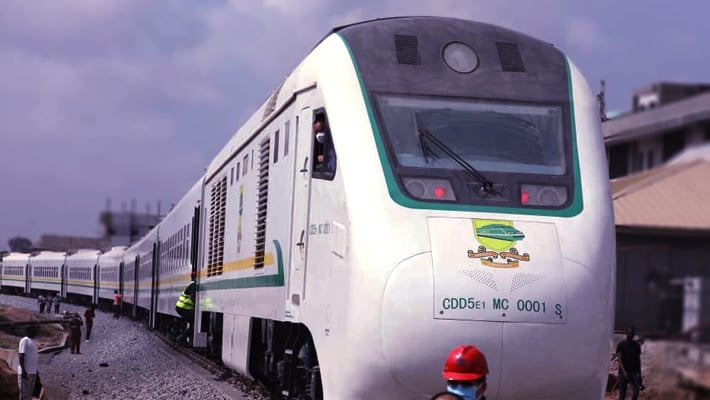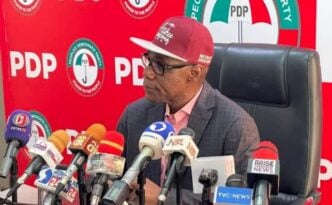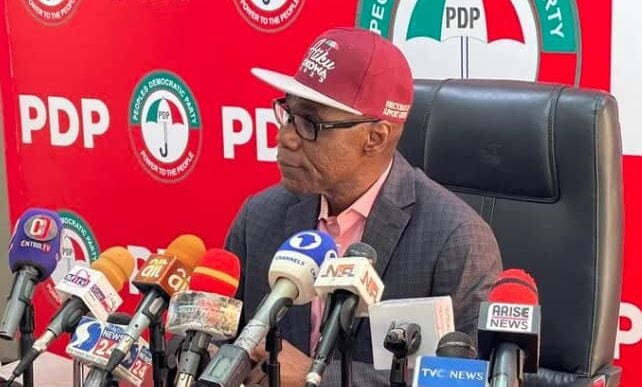Mahmood Yakubu, outgoing INEC chairman
How can election results become more credible and acceptable in Nigeria? If you ask five Nigerians, three will tell you an upright chief executive must be appointed for the Independent National Electoral Commission, better known as INEC. The pervasive opinion is that the most important factor in credible elections is the character of the person at the helm of affairs at INEC. That is probably why the country is waiting with bated breath for the successor to Prof Mahmood Yakubu, who is serving his last days as the chairman of the commission. President Bola Ahmed Tinubu is expected to nominate the next INEC chair soon. The nominee will then undergo senate confirmation hearing.
Yakubu was first appointed for a five-year term by President Muhammadu Buhari in October 2015. He then created a world record with his re-appointment in 2020, becoming the first Nigerian electoral boss to get a second term and, accordingly, the longest serving. Being electoral boss for 10 years is unheard of in Nigeria. There is now a big debate on where the next INEC chair should come from: north or south? Until Jega was appointed in 2010, no northerner had held the position. It had always been southerners. Jonathan broke the unwritten rule by going up north. Jega was succeeded by Yakubu, also a northerner. No wonder, where the next chairperson will come from is a big topic of debate.
Describing the INEC seat as one of the hottest in Nigeria should be officially classified as the “Understatement of the Year”. Nobody occupies that seat without getting a negative review — except from election winners. Those who lose typically demonise the chairman. Yakubu’s predecessor, Prof Attahiru Jega, was demonised by those who lost in 2011 and lionised by the same set of people in 2015 when they won. Those who lionised him in 2011 — after winning — ended up demonising him in 2015 after losing. That is the way we roll. An election is only free, fair and credible when you win. When you lose, it is the worst election in Nigeria’s history. Know that, know peace.
Back to the question: how can election results become more credible? There is no doubt that the leadership of the electoral commission is critical. While it is true that all electoral chiefs come under criticism over one misgiving or the other, some have definitely conducted themselves worse than the others. We have had chairmen who shamelessly interfered with the process and imposed candidates on parties. One told the media he could not allow a particular candidate “to be governor of my state”. We had one who declared a winner while collation of results was going on and mocked the opposition for objecting to it. He said they did not even print posters or campaign nationwide.
Advertisement
While the character of the INEC head is important, the competence is also vital. Without that, the commission will fail. The general election is conducted in 176,846 polling units across the 36 states of the federation and the FCT. In a country with severe infrastructure deficit, it requires competence to handle the logistical nightmare. It is an enormous job getting materials and personnel to 176,846 units across land and rivers, on good and bad roads, under clement and inclement weather, and under security challenges. While INEC is an organisation and a bureaucracy in itself, the chair is critical in shaping its conduct and culture — and building or maintaining its institutional capacity.
But there are things beyond the control of the chairman and the commission. Security, for one. The most powerful agents on the ground are the security personnel. If they are determined to prevent rigging, I am certain politicians and their agents will be contained. For instance, a presidential election is conducted at 176,846 polling units across 8,809 wards, 774 local government areas, 109 senatorial districts and 360 federal constituencies. People are stuffing ballot boxes, altering results or suppressing voting in Erin Ile, Odo Ere, Nguru, Fiditi, Somorika, Agba-asa and Okoroba. The INEC chairman is sitting in his office in Abuja. What really can he or she do to prevent the shenanigans?
More so, although the INEC chair is the returning officer (RO) for the presidential election, he is seated at the International Conference Centre, Abuja, waiting for the results from the ROs in the 36 states. The results are first read at the state level in front of TV cameras before the RO travels to Abuja to read them again, also in front of cameras. All the INEC chairman does is announce the tally. He cannot alter what has been announced at the state level and repeated in Abuja. It is only technical or procedural issues that he can raise at this point in the process. I have not witnessed any incident where the INEC chair changed the results already read out loud on national TV by the ROs.
Advertisement
My sense is that most of what is done to election results are at the collation centres. INEC uses mostly ad-hoc staff and youth corps members as field officers for elections. This is a major weak point in the chain. This is where politicians play what is called the “ground game”. They budget heavily to “settle” electoral officials (some of whom have been charged to court and convicted) and security personnel. It is well understood that candidates must “settle” this bunch in order to be taken seriously, especially in constituencies that are competitive. In one-way constituencies, it is difficult to rig elections in favour of weaker candidates. However, a strong candidate may massage the figures.
To combat malpractices, INEC has come up with a lot of innovations over the decades. Some of them are: dropping thumb-printed ballot papers into transparent boxes and in the open, numbering ballot papers and coding result sheets, counting votes in the open, using technology to prevent multiple registration, multiple voting and ballot stuffing, going through accreditation before voting, and so on. Yet, desperate politicians always find a way to short-circuit these hurdles. Indeed, the introduction of IReV, the result-viewing portal, by INEC in the 2023 elections was part of a reform to promote transparency, although it became the major reason the presidential election was discredited.
Why? The innovation failed on election day. The results of the federal legislative elections that were held at the same time were uploaded to IReV, but the presidential ones were not. Initially, INEC did not communicate well with Nigerians over what happened. People were left to guess and speculate. INEC eventually blamed the failure on a technical glitch and uploaded the results many days later. However, those who lost the election did not take kindly to it and alleged that the IReV was switched off on purpose to manipulate the outcome. I believe IReV was oversold by INEC and it came back to bite them. They marketed the innovation in a way that hinged the credibility of the elections on it.
Poignantly, it was through the same IReV that we were able to determine that indeed, the results in Rivers state were manipulated. An analysis by the BBC showed that the count for Tinubu/APC was inflated by over 106,000 votes, while the tally for Peter Obi/Labour Party was reduced by over 50,000. No one alleged that the INEC chairman was responsible. Interestingly, as well, if the figures posted on IReV were not altered, they would still have not been enough to make Obi the overall winner of the election. Besides, Rivers, and to some extent, Imo were the only states where IReV clearly proved that the results were altered. There were no proofs in the other 34 states and the FCT.
Advertisement
The IReV failure aside, I thought the 2023 general election was above average. Many governors lost their bids to be elected senators. That was very unusual (and encouraging). The APC, the ruling party with all the celebrated might of controlling state institutions, lost Kano, Katsina and Kaduna in the presidential election. The sitting president was from Katsina. Tinubu lost Lagos for the first time, either as a candidate or party leader. He also lost Osun state, even though he was expected to win. Effectively, he lost two of the six states in his home zone. Obi, seen as an outsider because of his “small” party, knocked out Tinubu and Atiku Abubakar in several states down south and up north.
It would, thus, be unhelpful not to acknowledge the progress we have made in the electoral process in the last three cycles. It is far from perfect but I think we are heading somewhere. Before the introduction of electronic registration for elections in 2015, the voting figures were insane. In 1999, 2003, 2007 and 2011, the valid votes were 29.8 million, 39 million, 35.4 million and 38.2 million respectively. The introduction of biometrics saw the figures plunge to 28.6 million in 2015, 27.3 million in 2019 and 24 million in 2023. I am not saying votes are still not being padded, but it is now more difficult and it seems we are getting closer to reality. I urge us not to discount this fact.
For election results to become more credible and acceptable in Nigeria, we surely need the right leadership at INEC. In addition, desperate politicians must repent. Likewise, voters must develop the temperament for democracy. It is awkward to keep promoting the notion that it is only when your candidate wins an election that it can be considered credible. I know it is an emotional thing, but voters have to become more rational and learn how to accept defeat. All these ingredients are essential if we want to truly grow this democracy and promote credible elections. Yakubu has done his shift. Whoever succeeds him must build on the positives while providing more solutions for the negatives.
AND FOUR OTHER THINGS…
UNCLE MOUFTAH, RIP
Advertisement
Three months ago, I sent Mallam Mouftah Baba-Ahmed what I called the “pivotal chapter” of my forthcoming book and asked him to help critique it. He called me later and said we needed to discuss it over lunch. He said I should see him anytime I was in Abuja. We communicated almost every day in one way or the other, but suddenly the WhatsApp chats stopped. I thought he was busy, only to be told he had fallen ill and we should remember him in our prayers. On September 17, he died, aged 63, in Saudi Arabia. It is so sudden and so sad. Baba-Ahmed, whom some of us called “Uncle Mufu”, was a warehouse of knowledge and a great bridge-builder. My condolences to the family. Shocking.
OGONI FOUR
Advertisement
Some activists may object to the posthumous conferment of national honours on the Ogoni Four, but I am of the opinion that President Bola Tinubu has just done the right thing. For those who may not know, Chiefs Albert Badey, Edward Kobani, Theophilus Orage and Samuel Orage (the “Ogoni Four”), were murdered and burnt to ashes in 1994 after being tagged “vultures” for their views. This led to the controversial trial, conviction and execution of Ogoni Nine, including playwright Ken Saro-Wiwa. When Tinubu granted posthumous pardon and national honours to Ogoni Nine, I imagined how the families and sympathisers of Ogoni Four would feel. Everybody in Ogoniland needs to heal. Closure.
GUINEA BLOCKADE
Advertisement
Guineans have just approved a new constitution via a referendum to pave the way for the military ruler, Gen Mamady Doumbouya, to run for president. Doumbouya had promised not to transmute to a civilian president after ousting President Alpha Condé in a military coup in 2021. The constitution now allows him to run and he can serve two seven-year terms. That is 14 years. The electoral board said 90 percent of the voters approved the new constitution, although opposition parties said it was all a joke. Of course, Doumbouya will be elected by a landslide and after 14 years, he can amend the constitution to axe the term limit. Another referendum will approve it by 99 percent. Afrodemocracy.
NO COMMENT
Advertisement
Dreams by some Nigerians to “japa” to Japan through the “Africa Hometown Initiative” have just been disrupted. The initiative was conceived by the Japan International Cooperation Agency (JICA) to strengthen ties with Africa by fostering exchanges to bridge four municipalities in Japan with four countries: Nigeria, Ghana, Mozambique and Tanzania. As usual, Nigerian government officials shouted to the whole world that Japan had decided to create a special visa for Nigerians. In this age of anti-immigration sentiments championed by US President Donald Trump, the Japanese swiftly resisted. The initiative has now been cancelled. Can we sue Japan for disappointment? Hahahaha…

